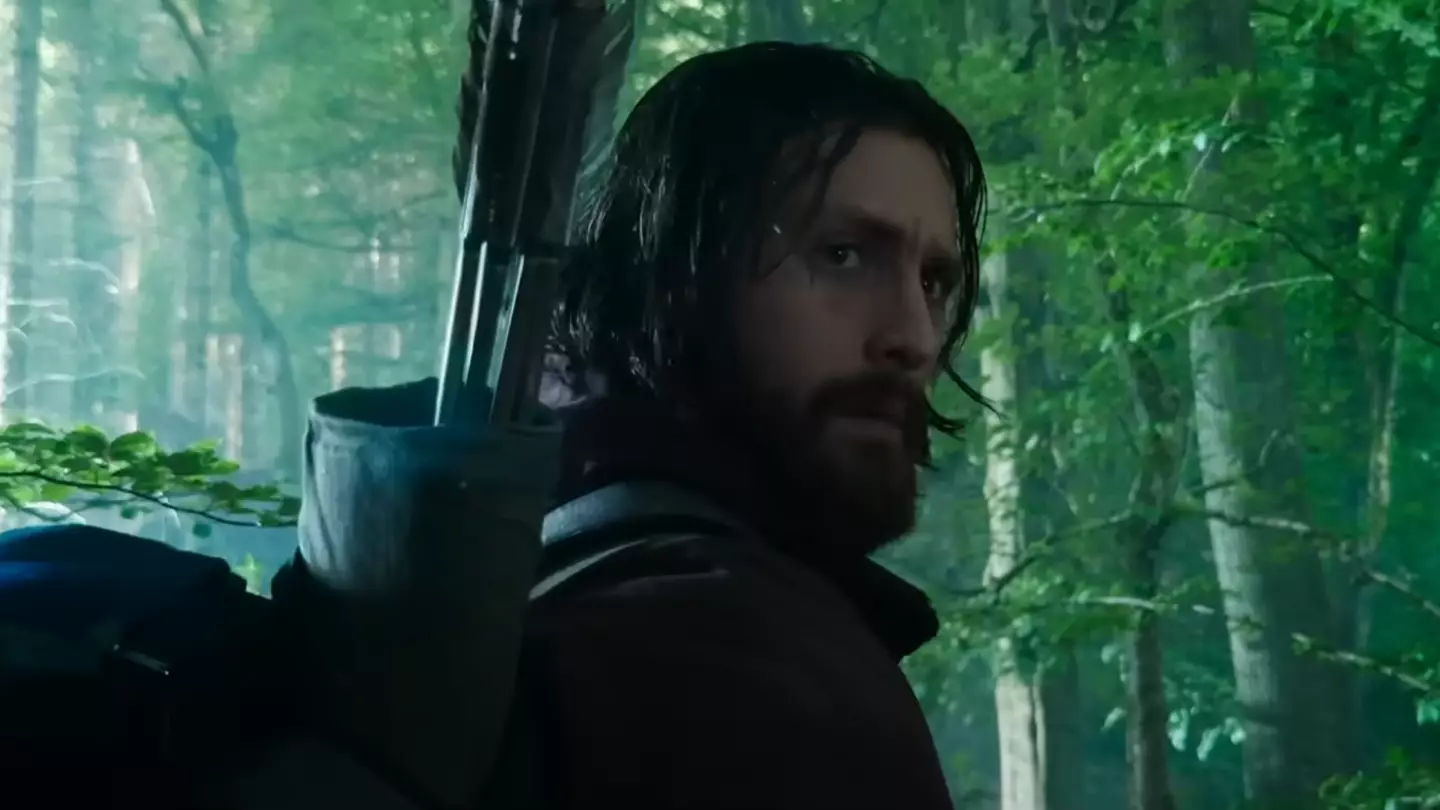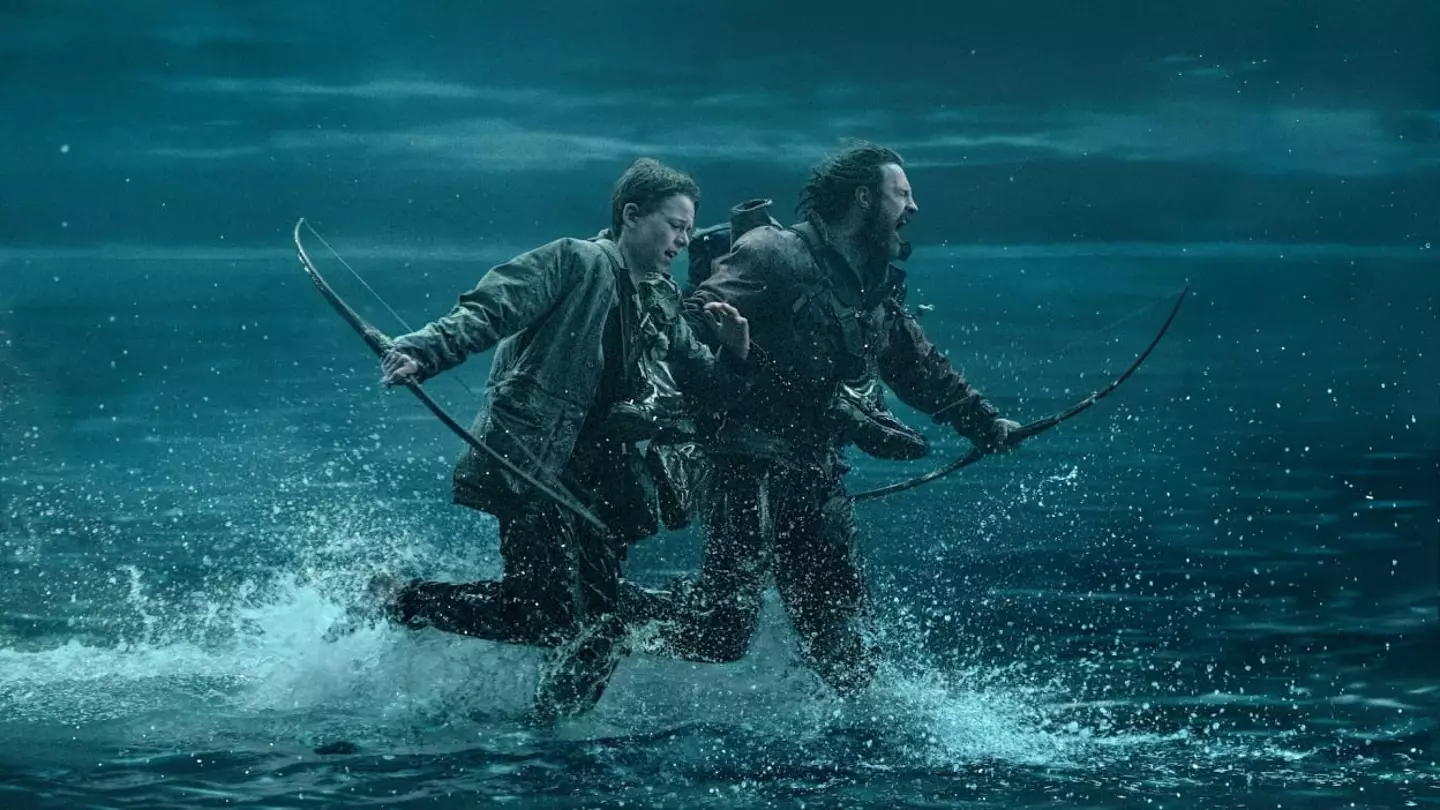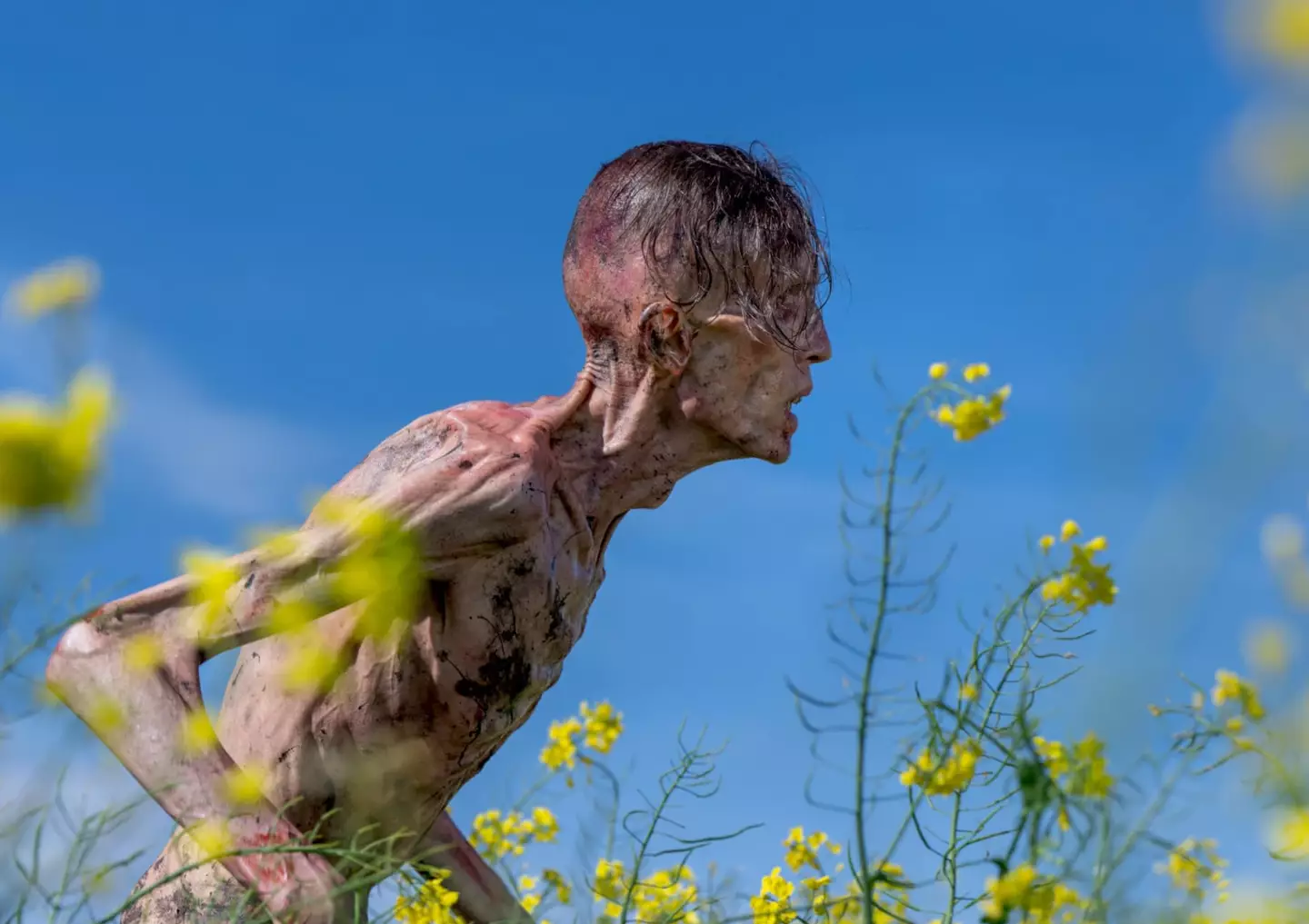
Danny Boyle has spoken out about the decision to use a ‘disturbing’ sound in 28 Years Later, something that caused the first trailer for the film to go viral.
The sound in question is intentionally unsettling, having been used in the past by the army to torture people looking to become soldiers during their basic training.
The film, starring Aaron Taylor-Johnson, Jodie Comer, Alfie Williams and Ralph Fiennes, is a scary watch throughout, but one moment stands out for many.
Early on in the film, Spike - played by Williams - is taken by his father Jamie - played by Taylor-Johnson - on his first trip to the mainland.
Advert
As members of the group on Holy Island, an island only accessible during low tide, the mainland is dangerous and full of zombies.

As Jamie and Spike walk to the mainland, the Rudyard Kipling poem Boots begins playing.
The rhythmic, repetitive, and ominous poem was included in the film’s first trailer and has been used in the past for American military training to psychologically torture soldiers.
This is used during the 'psychological impact' section of SERE schools in the US army, standing for ‘Survival, Evasion, Resistance, and Escape’.
The poem was first published in 1903, created to try and portray the monotony of marching as a soldier, however, the specific recording used by Danny Boyle is the 1915 recording used by Taylor Holmes.
Kevin McCarthy, a film journalist for Good Day DC and the ReelBlend podcast, interviewed Danny Boyle and Alex Garland, asking them about the specific use of the recording in 28 Years Later.
Alex Garland, the film’s writer, says of the use of the poem: “What I would say is the film has a real preoccupation with the contemporary state we are in at the moment which is not about looking forward so much but to do with looking back.”
He then spoke about how the film is preoccupied with misremembrances of the past and what we forget, and said that Taylor Holmes’ accent is one that has been forgotten.
He adds: “It’s to do with a telescoping relationship with things that have gone and how we feel about them, what we remember, what we forget, and what we misremember.”
Boyle, the film’s director, also spoke to Variety about the poem, saying that he and Garland actually decided to include it in the film due to its use in the first trailer.
The recording plays as Spike and Jamie’s walk is intercut with various historical archival recordings of war, and Boyle wanted a speech that fit this.

He then said: “Then we watched the first trailer that Sony sent us — Alex and I remember it vividly — and there was this [recording] on it, and we were like, ‘F**king hell!’ It was startling in its power.
“The trailer is a very good trailer, but there was something more than that about that [recording], about that tune, about that poem.
"We tried it in our archive sequence, and it was like it was made for it.”
28 Years Later is available to watch in cinemas now.
Topics: 28 Years Later, Aaron Taylor-Johnson, Jodie Comer, TV and Film, Film